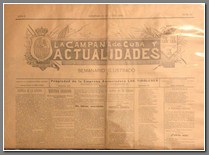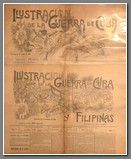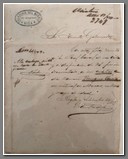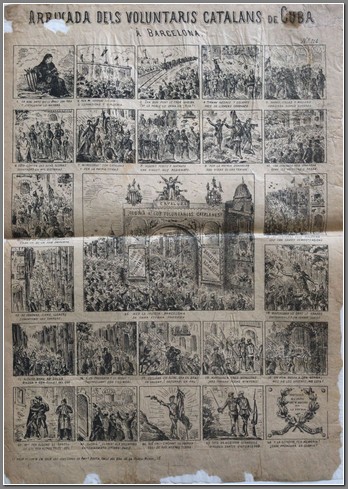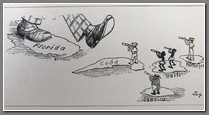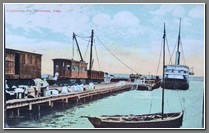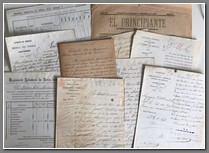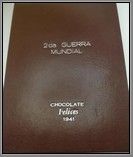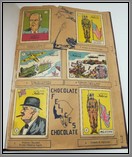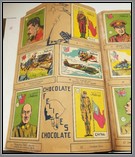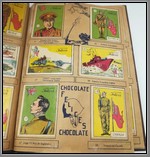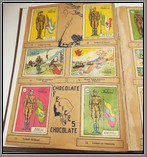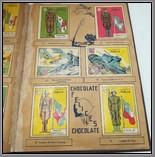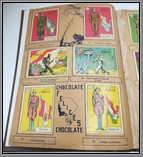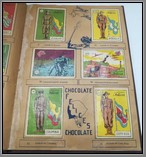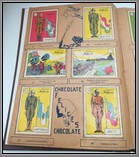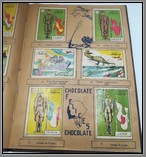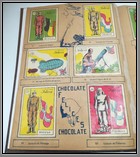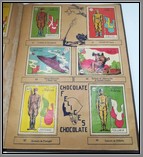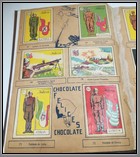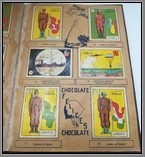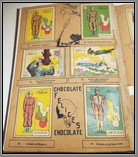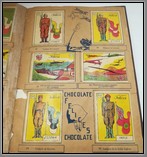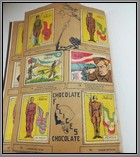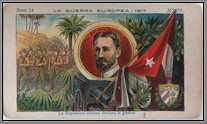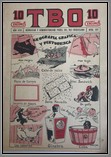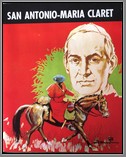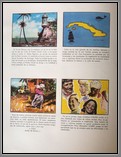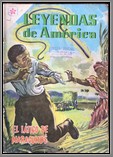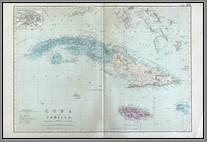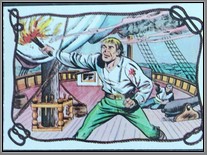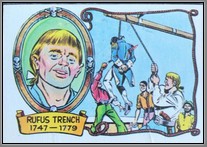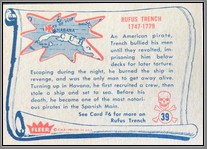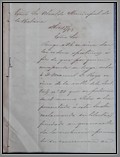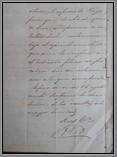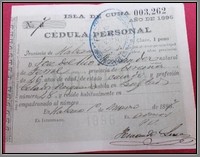Cuba and Puerto Rico
I thought it would be of interest to put together a set of manuscripts that tell the story of Chinese colonos in Cuba, from the voyage to Cuba, to his/her death certification. (Note: these files are all relating to different people, not the same person)
Authorization to allow 3000 Chinese settlers to come to Cuba: http://www.historyrevealed.eu/the-americas-new/cuba-and-puerto-rico/12851-communication-from-the-captain-general-cup367.html
Extremely rare ship manifest listing each Chinese being shipped to Cuba. An extremely rare item: http://www.historyrevealed.eu/the-americas-new/cuba-and-puerto-rico/10812-original-and-complete-1868-chinese-ship-manifest-cup086.html
In rare cases Chinese would be imported without authorization: https://www.historyrevealed.eu/the-americas-new/cuba-and-puerto-rico/12850-citation-of-the-general-captain-cup366.html
This is an extremely rare item. As the Chinese were setting foot on Cuban soil there were detailed records kept for each person......even showing the Chinese name they had and the Spanish name they were given: http://www.historyrevealed.eu/the-americas-new/cuba-and-puerto-rico/11582-this-is-one-of-the-earliest-charts-cup194.html
Claim from the “Colonizing Agency” for payment for bringing 14 Chinese to Cuba to work in the quarries: https://www.historyrevealed.eu/the-americas-new/cuba-and-puerto-rico/12836-document-dated-in-havana-cup352.html
Then he had to register with the Chinese consulate in Havana: http://www.historyrevealed.eu/the-americas-new/cuba-and-puerto-rico/13339-certificate-of-nationality-of-one-asian-cup448.html
Before getting his ID card he had to swear to uphold the laws of Cuba: https://www.historyrevealed.eu/the-americas-new/cuba-and-puerto-rico/11754-affidavit-of-an-asian-cup245.html
He also had to swear to the police as to his profession back in Macao: https://www.historyrevealed.eu/the-americas-new/cuba-and-puerto-rico/12915-asian-1872-profession-relative-cup392.html
He was issued an ID card: https://www.historyrevealed.eu/the-americas-new/cuba-and-puerto-rico/13348-identity-card-for-foreigners-cup457.html
If he did not have his ID card with him he had problems: https://www.historyrevealed.eu/the-americas-new/cuba-and-puerto-rico/13352-a-chinese-is-explaining-why-he-does-not-have-a-pass-cup461.html
At times he would escape: https://www.historyrevealed.eu/the-americas-new/cuba-and-puerto-rico/13350-one-asian-was-out-of-the-deposit-cup459.html
Then he had to undertake a contract for work...........spelling out in details what kind of food, clothing, etc he would be entitled to: http://www.historyrevealed.eu/the-americas-new/cuba-and-puerto-rico/13224-1872-work-contract-for-a-chinese-colono-cup439.html
In rare cases the work contract was in Chinese: https://www.historyrevealed.eu/the-americas-new/cuba-and-puerto-rico/13185-1871-chinese-contract-cup425.html
He had to be paid: https://www.historyrevealed.eu/the-americas-new/cuba-and-puerto-rico/12927-cuba-slavery-pagare-cup404.html
In some cases he was rented out: https://www.historyrevealed.eu/the-americas-new/cuba-and-puerto-rico/12613-pagar-for-the-rent-cup335.html
Then he would recontract again and needed to get a reference letter: http://www.historyrevealed.eu/the-americas-new/cuba-and-puerto-rico/11743-character-reference-for-an-asian-cup234.html
The owner had to request permission to the court to recontract a colono. This he would do for a number of them at one time: https://www.historyrevealed.eu/the-americas-new/cuba-and-puerto-rico/13345-permission-to-recontract-nine-asians-cup454.html
The recontract was a different form than the one used for his initial contract: http://www.historyrevealed.eu/the-americas-new/cuba-and-puerto-rico/13361-extend-hiring-of-a-chinese-worker-cup470.html
Eventually he wanted to gain his freedom and apply for permanent residency: https://www.historyrevealed.eu/the-americas-new/cuba-and-puerto-rico/11751-early-request-by-an-asian-for-residency-cup242.html
To gain his eventual freedom he had to furnish a baptism certificate: https://www.historyrevealed.eu/the-americas-new/cuba-and-puerto-rico/12916-asian-1874-i-beg-you-cup393.html
Sometimes that birth certificate could not be located: https://www.historyrevealed.eu/the-americas-new/cuba-and-puerto-rico/12910-asian-1876-the-yllmo-cup387.html
Often he ran into problems with the law for various offences and a police report was filed: https://www.historyrevealed.eu/the-americas-new/cuba-and-puerto-rico/12901-police-headquarters-of-matanzas-cup378.html
When he died there were documents from the hospital: http://www.historyrevealed.eu/the-americas-new/cuba-and-puerto-rico/12621-1888-death-notice-of-a-native-cup343.html
At times, the death would be questioned: https://www.historyrevealed.eu/the-americas-new/cuba-and-puerto-rico/13220-interesting-court-file-on-the-life-of-a-chinese-colono-cup435.html
BONUS ITEM: Cuban Chinese Masonic warrant card: https://www.historyrevealed.eu/the-americas-new/cuba-and-puerto-rico/10813-this-is-a-1960-warrant-card-cup087.html
Price: $17030.00
Rare 19th century auca Arivada Dels Voluntaris Catalans de Cuba. Size 31x42cm. Back covered with Japanese rice paper. Fraying at margin edges, not affecting images proper. B
Price: $800.00
Note: An auca is a graphic format popular in Spain and especially in the region of Catalonia around Barcelona. The genre dates at least to the 17th century but was banned during the 18th century before experiencing a renewal during the 19th and later the 20th centuries as a uniquely Catalonian form of expression. It takes the form of a cartoon or a comic strip, typically with 48 blocks of image and text, although some may have less. An auca is generally produced as a single sheet, but occasionally a booklet form is used. The captions tend to have some sort of consistent rhyme to assist with the flow and storytelling. Many times, the term “auca” appears in the title, but another term, “aleluya,” is used, apparently interchangeably. Some sources indicate that the aleluya originated in Castile and originally included religious elements that were shed over time. Auca was a very popular form of anti-Nationalist propaganda during the Civil War. This is the only auca that was produced on the subject of the Spanish insurrection.
Archive of 8 manuscript documents from Puerto Rico during the Spanish American war and its lead up. Included are a February 1891 issue of El Principiante, an 8 page letter to the Minister of War written in 1896 and 8 different documents from different military units serving on the island. B
Price: $800.00
Early Auca titled La Negrita Honrada. Print by Epinal Pellerin. Size 30x40cm. M
Note: An auca is a graphic format popular in Spain and especially in the region of Catalonia around Barcelona. The genre dates at least to the 17th century but was banned during the 18th century before experiencing a renewal during the 19th and later the 20th centuries as a uniquely Catalonian form of expression. It takes the form of a cartoon or a comic strip, typically with 48 blocks of image and text, although some may have less. An auca is generally produced as a single sheet, but occasionally a booklet form is used. The captions tend to have some sort of consistent rhyme to assist with the flow and storytelling. Many times the term “auca” appears in the title, but another term, “aleluya,” is used, apparently interchangeably. Some sources indicate that the aleluya originated in Castile and originally included religious elements that were shed over time. Auca was a very popular form of anti-Nationalist propaganda during the Civil War.
Price: $400.00

